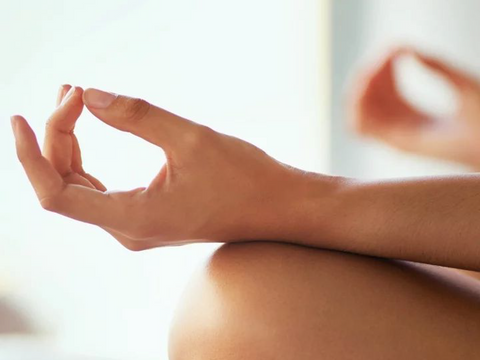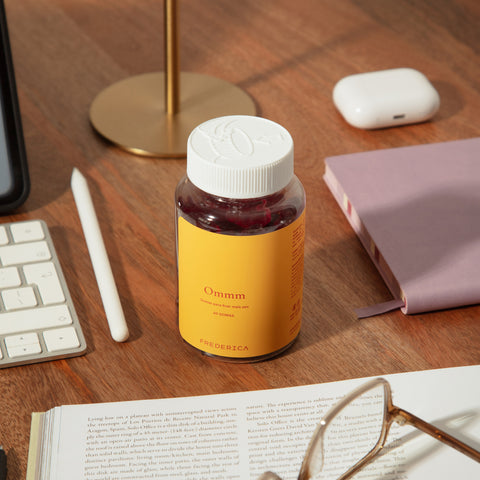The practice of Mindfulness encompasses two practices: meditative and cognitive practices. This philosophy of life that aims to help manage stress and anxiety in everyday life is already ancient and the World Health Organization recommends it.
The aim is that, during the day, we forget a little about the past so that we don't look forward to the future so much (it hasn't arrived yet and it may even be a positive surprise!) and that we focus on the present, on what is really happening in our lives. lives (inside or outside of us), in the most relaxed and harmonious way possible.
However, we all know that it is not an easy task, as described above. This is why meditation is not enough and continues to be why it is almost obligatory to carry out such cognitive practices that are no more or less than working, through specific exercises for this purpose, on acceptance, gratitude, detachment, self-compassion and compassion.
Therefore, although in a very generalized way, here are simple but very important tips to put into practice during the day (now and always!) in order to manage stress and anxiety a little more (and better).
The night before: without too much tension, try to prepare everything you will need ready the next day. Don't save everything for tomorrow morning. You will wake up more rested. And, don't forget: it's one day at a time, one activity at a time.
Morning:
- Wake up and stretch! After a night of “standing still”, it is very important that you do some natural stretching, not only to reduce the likelihood of experiencing muscle pain but also for your body to understand that it is ready to start moving. And, before you get up (much less suddenly), think loudly and deeply, at least three times:
«Today is going to be a good day. I solve all problems with harmony! I am capable! I like myself!"
- Go to the window! Allow your brain to realize that it is daytime, by receiving this information through the natural light coming from the street. Take a deep breath and exhale slowly, calmly. You will be talking to your unconscious mind (which understands very well what your breathing is saying!) and telling you that everything is ok, that you are not tense;
- Eat carefully! At breakfast, pay attention to what you are eating. Don't start (re)scheduling the day in your mind right away. If you do this you will be taking the morning anxiety pill. Postpone. Start reviewing your day's planning only after that moment and without complicating things;
- Focus on the path! Pay attention to the route you are taking. Try to counter the natural tendency to dwell on or anticipate situations. You haven't yet reached the place where you will have to do the big activities of the day. As such, try to observe people (without judging or criticizing), cars, the color of the sky, etc. And have positive thoughts! Remember the mantra from point 1 in the morning;
- Get organized! No matter how many activities you have to do and/or issues to resolve, you will have to organize them by priorities and try to do one thing at a time;
- Tolerate! No matter how much it costs you, try to remember that each person is a different world, that they also have problems to solve and that, often, even if it is awkward, they are trying to do the best they can at that moment in their life. Tolerate it and don't see it as a personal attack. If you have to respond, do so calmly and with discernment so as not to fuel an unnecessary and counterproductive discussion.
Lunch time:
It is essential that you try to leave the place where you are and go to the street! If you can, have lunch outside of work or study and try to take a short walk, even just ten minutes. Take a few breaths in and out outdoors. If at this time you feel very tense, anxious or sad, listen to our Podcast I , here at Frederica.
Afternoon:
- (Re)organize yourself! Reorganize your activities according to priorities and if you have already resolved the morning's issues, try to forget them. Make mental space for what’s new;
- Give thanks! Pause for a minute or two and try to look internally for something that you are very grateful for, regardless of the problems you may be having at this moment in your life. Be grateful, even if it's the fact that you're alive (it's a fact!);
- Snack and drink water! Drink water throughout the day and don't forget to have a snack. Most of the energy that moves the brain and gives balanced orders for the nervous system to work correctly comes from food;
- Go to the window! At snack time, look through a window. If you can open it and breathe in and out, even better. Your brain, which controls everything, needs to get some oxygen. It is also important to look at other things, in order to let your neurons rest, deswell and work better again;
- Accept and ask for help! Accept that you may have some limitations regarding certain subjects (like all of us) but that you have wonderful qualities! So, forget about your ego and ask for help from someone who knows from the outset that they won't mind helping you (in whatever way it may be). On the other hand, accept it if that person cannot (or does not want) to help you. If this happens, it's probably because you're also having a stressful day. Accept some less good emotions you may be feeling. These feelings will eventually pass;
- Don't rush back! When your work or study hours are over, try not to rush home. Even though there are many other activities waiting for you, take your time. According to statistics, it will only take fifteen or thirty minutes longer than normal, and you can then make up for that time. If you have to run so as not to miss the bus or subway, do it, but when you are in them, standing or sitting, take a deep breath, feel that everything is ok, that that part of the day is over and allow yourself to relax internally. If you get stuck in traffic, take the opportunity to rest, think about things and/or people that make you happy. Don't allow yourself to become overly anxious. This won't make the traffic jam end any faster;
- Talk to someone! Whether in person or over the phone, try talking to someone you trust to talk about your day. It's very important to get things off your chest;
- Do a physical activity! If you're not in the habit of doing it in the morning, take advantage of the late afternoon to at least go for a walk, slow or not, but lasting at least fifteen minutes. Physical exercise is extremely important in managing emotions and regulating stress and anxiety!
Night:
- Dine calmly! Try to keep this time as relaxed as possible. Do your best to eat slowly and pay attention to the moment;
- Receive and pay attention! Make yourself heard but don't forget to pay attention to the people you love and who live with you. It will feel good to give and receive attention;
- Do it slowly! Whatever you still have to do tonight, do it slowly. Remember: " Whoever does what he can..." is not, in fact, obligated to do anything more! Think: "I'm human. I need to rest so I can continue doing the things I want and need to do, in the best way possible. I allow myself to take breaks and do this slowly.";
- Take a relaxing bath! If you can, cleanse yourself from that day with a good shower. A mindful bath to sleep better. Feel how good the water feels on your body and the lightness of the gel or soap on your skin. Still in the bath, inhale and exhale three times, deeply but relaxed;
- Do a meditation! If you still feel connected to the day that has passed, with anguish and anxieties, there is nothing better than listening to a guided meditation to help you sleep. In these cases, meditations based on Creative Visualization of Relaxation can be very useful. Listen to our Podcast II – Jardim da Tranquilidade and let yourself fall asleep. If you are too sad or have a great mix of emotions, you can also choose to do an Emotional Scanner . You can find several free ones on the Internet.
The next day, try following these steps again. You will see that they can help a lot!
Vanda do Nascimento is a therapist, trainer and Mindfulness instructor at the Escola de Mindfulness Essencial, which she founded in 2016. She began her career as a teacher in 1997, obtaining a degree in Education. On that same date, he also began his studies in Reiki, Meditation and Mindfulness. Later, he embarked on the path of Psychology and delved even deeper into the topic of Mindfulness, in order to continue his fight to control stress and anxiety.


















